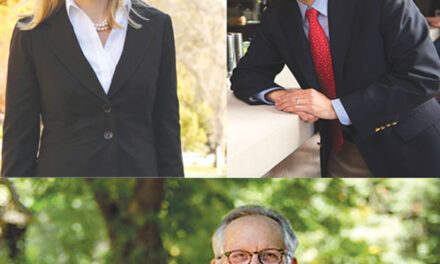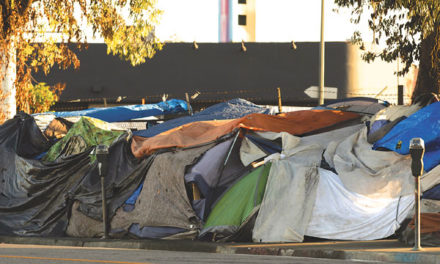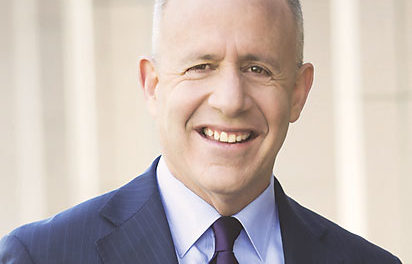No on Measure G
Funding nonprofits with tax dollars hurts the city
By Angelique Ashby, Larry Carr and Jeff Harris
February 2020
Measure G is one such initiative.

It promises endless solutions to challenges involving our most vulnerable young people. But in reality, Measure G would take money from essential city services and funnel public dollars into the bank accounts of privately operated organizations.
Behind the appealing rhetoric, Measure G is nothing more than an attempt to fund nonprofit groups with tax dollars from the city’s general fund. Currently, those dollars provide critical services, including police and fire protection, park maintenance and youth services.
If Measure G passes on the March 3 ballot, a chunk of funding for essential safety services and quality-of-life amenities—2.5 percent of Sacramento’s annual budget—will be siphoned off to nonprofits. Services will be cut.
This isn’t a scare tactic. Voters should understand that 2.5 percent of the general fund is more than just a number. It translates directly into fulltime jobs for police officers, firefighters, parks workers and other city employees.
Another problem with Measure G involves oversight. The creators of Measure G throw around words such as “accountability” and “transparency.” However, they have gone to extreme lengths to push the City Council as far away as possible from an oversight role. Why?
Measure G seeks to give city funds to nonprofit groups selected by a committee comprised of nonelected youth and adults. The City Council will receive reports on work conducted by the committee, but will not be allowed to challenge specific decisions made by the group.
The process would circumvent the basic oversight process that makes your elected council representatives accountable for how tax dollars are spent in Sacramento.
Measure G removes flexibility from the City Council’s budgetary protocol. In times of emergency or recession, the tax “lockbox” created under Measure G would grab 2.5 percent of our general fund and make the money inaccessible to the City Council.
As we saw when funds dried up during the Great Recession, Sacramento could face the closure of fire stations, pools, libraries, community centers or parks programs. The city could reduce ambulance service or require the layoff of city employees—while continuing to foot the bill for nonprofit groups.
Another fiction spread by Measure G proponents involves the city’s current spending on youth programs. The measure’s backers want voters to believe that Sacramento neglects its young people and eagerly chops funding for youth programs at every opportunity.
This is not true. Here are the facts: Currently, 7.5 percent of city funds are spent on youth services and nonprofits that support after-school programming, workforce development, youth employment, gang-prevention programs, gun-violence-reduction programs, recreation, community centers, libraries, public-safety academies and more.
With such generous support for our young people, Sacramento doesn’t need Measure G.
And Measure G would not be a temporary experiment. The measure would change our city charter. It could only be undone by another costly general ballot measure.
The consequences of Measure G could reverberate far beyond nonprofits. The measure sets a dangerous precedent by paving the way for any special-interest group to float an initiative, make wild promises and secure permanent, locked-in funding with your tax dollars.
Measure G is ballot-box budgeting at its worst. It ties the city’s hands and gives authority to a committee with no budget expertise and no accountability to voters. If Measure G passes, it would negate our ability to increase essential city services such as traffic enforcement, street repair planning, parks programming, library hours, ambulance and fire service, or to invest in our animal shelter.
Finally, Measure G would leave no resources for addressing homelessness or affordable housing, which are our greatest needs.
Funding nonprofits with your tax dollars is not in Sacramento’s best interest. Please vote no on Measure G.
Angelique Ashby, Larry Carr and Jeff Harris are members of the Sacramento City Council. They can be reached at aashby@cityofsacramento.org, lcarr@cityofsacramento.org, and jsharris@cityofsacramento.org.















